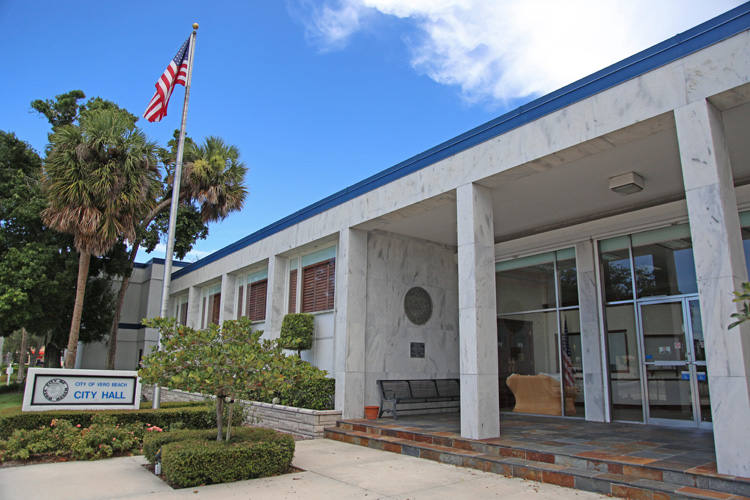
Vero Beach’s new “One Rate” utility plan, designed to put all of its water-sewer customers on the road to steeper rates in January, hasn’t even gone into effect yet and it’s attracting criticism from outside-the-city customers to the north and south.
On Tuesday, South Beach customer Doug DeMuth asked the County Commission to intervene on behalf of out-of-city residents whose homes have been stuck on Vero’s utility system without a valid franchise agreement for the past five years.
“The City of Vero Beach staff continues to post rate information without a detailed engineering design construction estimate for their new wastewater treatment plant in place. This puts the cart before the horse. They need to provide the public with an detailed project cost, its degree of accuracy and its impact on our future rates,” DeMuth said.
“I ask that the Board of County Commissioners to look into this situation and publicly inform county rate payers about what their future rates will become,” DeMuth said.
A large portion of the rate increase will be set aside to pay debt service on the new sewer plant slated to be built on Vero Beach Regional Airport land. Initial estimates say the plant will cost $82 million, plus about $74 million in financing costs, for a total of $156 million, to be paid over 30 years.
But the city has not received any actual bids on constructing the new plant. Utility staff is in the process of preparing a bid packet on the membrane equipment. The choice of membranes, Utility Director Rob Bolton said, will determine the design of the plant.
The rest of the added revenue will go toward operating costs. Those costs have been increasing due to inflation and government regulation, but the utility still returns a profit of more than $1 million annually which it transfers to Vero’s general fund. There’s been no serious discussion of ending those transfers, which Vero says are the fair rate of return for city taxpayers as owners of the utility. In fact, the 6 percent general fund transfers will increase as revenues rise.
Vero has been serving South Beach customers without a valid franchise agreement, so those customers’ rates are simply set by ordinance by the City Council.
The Town of Indian River Shores has a franchise agreement in force through October 2027 wherein Vero pledges to match Indian River County Utilities’ low rates for Shores customers. But Vero might impose the new rate hikes in January anyway – daring the Shores to sue them, again, for breach of contract.
The Vero council-approved water and sewer rates will be significantly higher than published county rates. Over the next three years, customers will see a cumulative increase of nearly 80 percent on their sewer bills under the One Rate plan.
“I suspect they are going to charge the One Rate to the Indian River Shores customers but it is not clear to us,” Shores Mayor Brian Foley said, noting that the council approved a provision not to increase town customers’ reuse irrigation water rates due to pending litigation over those rates. “Until we get a bill I don’t know.”
The town sued Vero over reuse irrigation water rates in 2019. Vero won a summary judgment but the Shores appealed Circuit Court Judge Janet Croom’s ruling and that appeal is pending.
The town’s lawyers sent Vero City Attorney John Turner a letter last week asking Turner to clarify the city’s intentions by this Friday. Turner is on vacation this week so it’s unclear if he’ll meet the deadline, but the city’s response will likely determine what happens next.
Vero City Manager Monte Falls has stated publicly numerous times that the new rates would be charged to all of Vero’s customers. The rate consultant’s financial modeling was built upon the premise that every Vero utility customer, including the 15 percent of customers in the Town of Indian River Shores, would pay the new rates.
It would be shocking for Vero Beach to reverse course on that now.
When utility bills hit in January with the new rate hikes included, if Indian River Shores’ ratepayers’ bills include the new rates approved last week, the town will have no choice but to take some sort of legal action, sooner or later.



